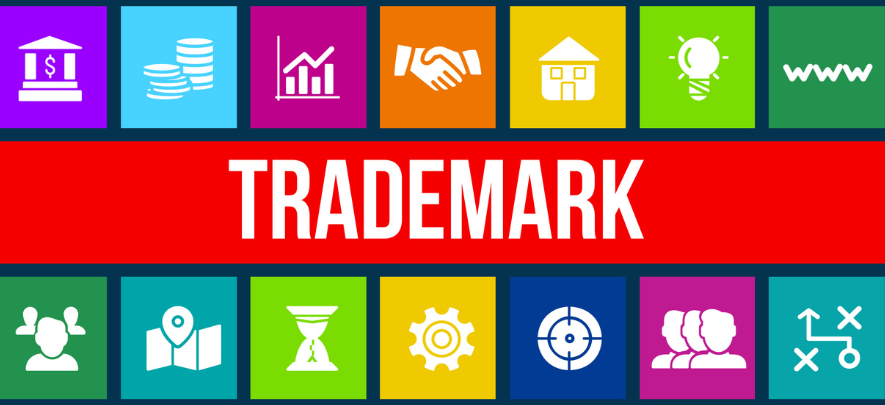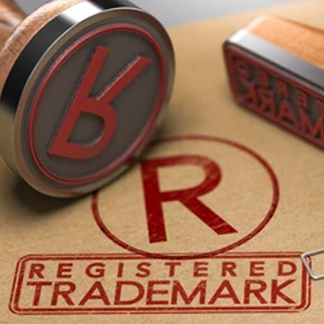
What is the Cost of a Trademark for Small Enterprises?

Legal & Compliance
30 week ago — 13 min read
In the competitive world of business, branding is everything. Your brand represents your company’s identity, values, and reputation. It’s what sets you apart from the competition and helps you build a loyal customer base. But how do you protect this valuable asset? The answer lies in trademarks.
For small enterprises, trademarks play a crucial role in safeguarding their brand identity. However, many small business owners are concerned about the cost of obtaining and maintaining a trademark. In this comprehensive blog, we’ll explore the expenses, benefits, and strategies for small enterprises looking to protect their brand without breaking the bank.
Understanding Trademarks
Before diving into the costs, let’s start by understanding what trademarks are and why they matter for small businesses.
What is a Trademark?
A trademark is a legal protection that grants exclusive rights to use a specific name, logo, symbol, or phrase to identify a product or service. It serves as a way to distinguish your goods or services from those of your competitors.
Symbolic Representation
At its core, a trademark is a symbolic representation of your business. It encapsulates not just the name of your company or product but also the essence of what your business stands for. This symbolism can take various forms, including a name, logo, symbol, phrase, or even a combination of these elements.
Exclusive Rights
One of the key aspects of a trademark is that it grants exclusive rights to the owner. When you successfully register a trademark, you gain the legal authority to be the sole user of that particular symbol or name within a specified category or class of goods or services. This exclusivity is crucial because it helps protect your brand from being imitated or copied by competitors.
Identity and Branding
In a crowded marketplace, having a trademark is akin to having a distinct personality for your business. It’s what makes your business instantly recognisable to consumers. Think of iconic logos like the golden arches of McDonald’s or the swoosh of Nike. These symbols have become synonymous with the respective companies and are instantly associated with the quality and values they represent.
Distinguishing Factor
A trademark is fundamentally a tool for differentiation. It sets your products or services apart from those of your competitors. When consumers see your trademark on a product or in an advertisement, they should immediately recognize it as uniquely yours. This distinction fosters trust and loyalty among consumers because they know what to expect from your brand.
Preventing Confusion
Trademarks play a crucial role in preventing consumer confusion. They ensure that consumers can make informed choices about the products or services they purchase. Without trademarks, it would be easy for unscrupulous businesses to create knock-off products or use similar names and logos to deceive customers.
Asset and Business Value
Over time, a successful trademark can become a valuable asset for your business. Brands with strong trademarks often have higher market value because they are seen as more established and reputable. In some cases, businesses even license their trademarks to others, generating additional revenue.
Geographical Significance
Trademarks can also signify the geographical origin of a product or service. For example, the “Swiss Made” label on a watch indicates that it comes from Switzerland, a country renowned for its watchmaking craftsmanship. This geographical significance adds another layer of meaning to trademarks.
Cultural and Emotional Connection
Beyond their functional role in business, trademarks often hold cultural and emotional significance. They become part of the fabric of society, influencing popular culture and evoking memories and emotions. Consider iconic trademarks like Coca-Cola’s distinctive script, which has become a symbol of shared moments and celebrations.
Also read: What Are the Trademark Classes for Trademark Registration?
Why Trademarks Matter for Small Businesses?
- Brand Recognition: Trademarks help customers recognize and trust your brand, which is especially important for small businesses trying to establish themselves in the market.
- Protection from Infringement: Trademarks provide legal protection against others using your brand’s identity, preventing confusion among consumers.
- Asset Value: A trademark can become a valuable asset for your business, potentially increasing its overall worth.
- Licensing Opportunities: Trademarks can be licensed to others, generating additional revenue for your business.
Now that we’ve established why trademarks are essential, let’s delve into the costs associated with obtaining and maintaining one for your small enterprise.
The Cost of Trademarks
The cost of obtaining and maintaining a trademark can vary widely depending on several factors. Let’s break down these costs step by step:
- Preliminary Research
Before applying for a trademark, it’s crucial to conduct a thorough search to ensure that your desired trademark is available and not already in use by another entity. This can be done independently or with the help of a trademark attorney.
Cost
| Aspect | Individual | DPIIT Registered Startup | Registered MSME | Other Entities |
| Government Fees per class | ₹4,500 | ₹4,500 | ₹4,500 | ₹9,000 |
| Collective Mark Fees per class | ₹10,000 | ₹10,000 | ₹10,000 | ₹10,000 |
| Basic Cost for Convention Country | ₹10,000 | ₹10,000 | ₹10,000 | ₹10,000 |
| Additional Fees for Each Subsequent Class | Varies | Varies | Varies | Varies |
| WIPO Fees for Madrid Protocol (per country) | Varies | Varies | Varies | Varies |
Please note that the fees for registering in a convention country and under the Madrid Protocol can vary significantly depending on the specific country or countries you wish to register your trademark in. It’s advisable to check with the relevant authorities or legal professionals for precise cost details.
Additionally, legal fees for trademark registration can vary depending on the complexity of the application and whether you choose to engage an intellectual property lawyer for assistance. Legal fees for filing a notice of objection against a conflicting trademark application in one class are ₹2,700.
- Trademark Application Fees
The next step is filing a trademark application with the United States Patent and Trademark Office (USPTO) or the relevant authority in your country. Application fees can vary based on the type of trademark and the filing basis (e.g., intent to use or current use).
- Legal Assistance
While it’s possible to file a trademark application on your own, many small businesses choose to enlist the help of a trademark attorney to navigate the complexities of the process and ensure a higher likelihood of success.
- Maintenance and Renewal
Once your trademark is approved, it’s essential to maintain and renew it regularly to keep it in force. This typically involves filing renewal applications and paying maintenance fees.
- Enforcement and Litigation
In some cases, you may need to enforce your trademark rights through legal action, such as sending cease-and-desist letters or pursuing litigation against infringing parties. This can involve additional legal fees.
Also read: 5-step guide to trademarking your brand
Strategies to Manage Trademark Costs
While the costs of obtaining and maintaining a trademark can add up, there are several strategies small enterprises can employ to manage these expenses effectively:
- Conduct Thorough Research
Invest time in conducting a comprehensive trademark search before filing an application. This can help you avoid potential conflicts and expenses down the road.
- Prioritise Your Classes
When filing a trademark application, carefully consider which classes of goods or services you need to protect. Focusing on essential classes can reduce application and maintenance costs.
- DIY vs. Attorney
Decide whether you can handle the trademark application process on your own or if it’s worth investing in a trademark attorney. While attorney fees can be substantial, they can also increase your chances of a successful application.
- Budget for Maintenance
Plan for the long-term by budgeting for trademark maintenance fees and renewal costs. This ensures that your trademark remains in force and continues to protect your brand.
- Monitor and Enforce
Regularly monitor the marketplace for potential trademark infringements. Taking swift action against infringing parties can help protect your brand without the need for costly litigation.
Also read: How to register business name trademark?
FAQs on Cost of a Trademark for Small Enterprises
What is the difference between a single mark, a series of marks, and a collective mark when it comes to trademark registration costs?
A single mark refers to the registration of a unique name, logo, symbol, or phrase for a specific product or service in one class. A series of marks involves registering multiple variations of a trademark under a single application. A collective mark represents a trademark used by members of an association, organization, or group to identify their products or services collectively. Registration costs vary based on the type of mark and the number of classes they apply to.
Do government fees for trademark registration differ based on the type of entity applying (individual, startup, MSME, or others)?
Yes, government fees for trademark registration in India do vary based on the type of entity. Individuals, DPIIT registered startups, and registered MSMEs are eligible for a lower fee of ₹4,500 per class per application. All other entities, including larger businesses, are charged ₹9,000 per class per application.
Are there additional costs for registering a trademark in more than one class?
Yes, there are additional costs for each subsequent class when registering a trademark in India. The initial fee applies per class, and if you intend to protect your mark in multiple classes, you will need to pay separate fees for each additional class.
How much does it cost to register a trademark in a convention country or through the Madrid Protocol?
The basic cost for registering a trademark in a convention country in India is ₹10,000. However, costs can vary depending on the country you are registering in. For registration under the Madrid Protocol, fees can vary significantly depending on the number of member countries you wish to include in your application. These fees are typically determined by the World Intellectual Property Rights Organization (WIPO) and can vary from country to country.
Should I hire a professional, such as an intellectual property lawyer, for the trademark registration process, and how much would their services cost?
It's highly advisable to consult a professional, such as an intellectual property lawyer, for the trademark registration process, especially if you want to ensure a smooth and successful registration. The cost of legal services can vary depending on the complexity of your case and the specific services you require. Legal fees for trademark registration and related services can range from a few thousand rupees to several lakhs, so it's best to obtain quotes from legal professionals and choose one that fits your needs and budget.
Also read: How do you trademark a name globally?
To explore business opportunities, link with me by clicking on the 'Connect' button on my eBiz Card.
Image source: Canva
Disclaimer: The views and opinions expressed in this article are those of the author and do not necessarily reflect the views, official policy or position of GlobalLinker.
Posted by
Vakilsearch StaffGreetings! We would love to work with you and your company. We look forward to connecting with business houses and MSME's.
View Vakilsearch 's profile
Other articles written by Vakilsearch Staff
Hidden Costs of Running a Small Business
31 week ago
Most read this week


















Comments
Please login or Register to join the discussion